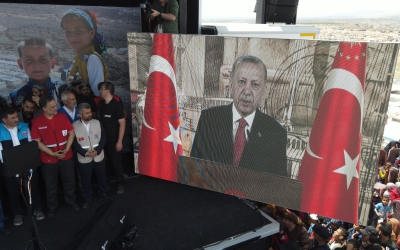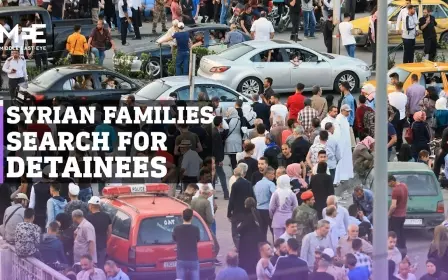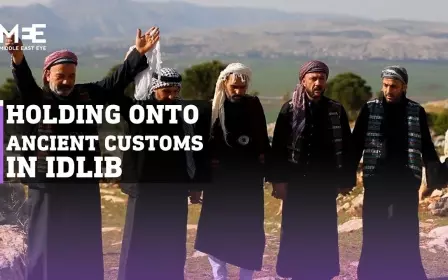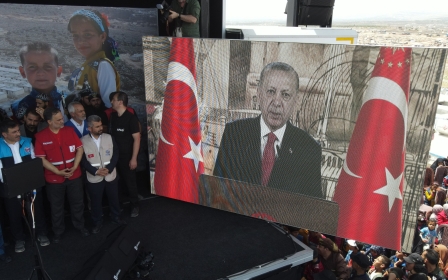Syria: UK aid cuts have 'forced 40,000 children out of school'
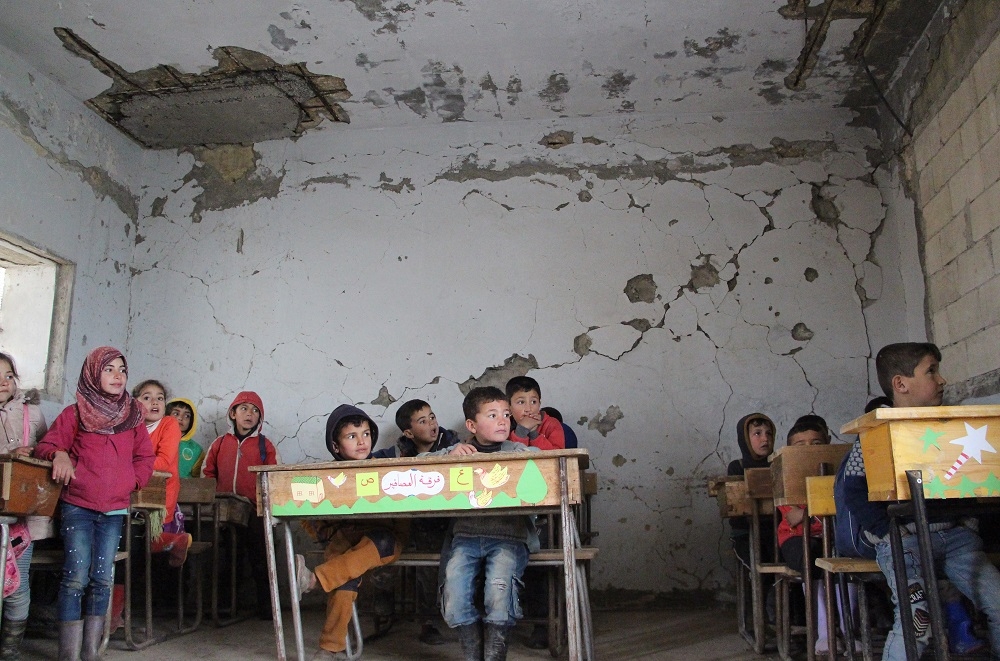
More than 40,000 Syrian children have been forced out of school as a result of cuts to overseas aid by the British government, according to research commissioned by Syria Relief and its parent charity Action For Humanity.
British funding for 133 schools run by Syria Relief ended on Saturday, one of the effects of a government decision first announced in November 2020 to cut total foreign aid spending from a commitment of 0.7 percent of gross national income to 0.5 percent.
In their report, released on Thursday and entitled "The children failed by the world", the charities described the UK's action as "a political choice that we, and the children, parents and teachers of Syria, hope will desperately be reversed".
Jessica Adams, head of communications for Syria Relief/Action For Humanity and the report's author, said: "In less than 12 months, Syria Relief have gone from running 306 schools to 24 and it could be zero by the end of year, leaving over 100,000 children out of education."
Among the consequences of the closures, Syria Relief said "parents are considering sending their children to work or forcing their girls into early marriages if they are unable to attend school". The charity said "thousands of children who need psychosocial support due to trauma will no longer receive any of the mental health support they need".
New MEE newsletter: Jerusalem Dispatch
Sign up to get the latest insights and analysis on Israel-Palestine, alongside Turkey Unpacked and other MEE newsletters
According to Unicef, the United Nations children's fund, since the start of the country's civil war in 2011, one in three schools inside Syria can no longer be used because they've been destroyed, damaged or used for military purposes.
Calling on the UK to reverse its cuts, the charities said they were launching an Education Emergency campaign on Thursday to ask the British public to fund the gaps left by the UK government's actions.
Adams said: “We believe that the UK aid budget cuts and the struggle to gain awareness and sympathy of the plight of Syrian children, amid competing media stories - Ukraine, Covid-19 and Partygate - are to blame for the 100,000+ children who now face a childhood without an education.
"Whilst we fully support the international response to the humanitarian crisis in Ukraine, it is deeply unfair for aid in Ukraine to come at the expense of victims of other conflicts like children in Syria."
Amnesty report
Also citing dwindling international aid, Amnesty International said on Thursday that approximately 3.1 million people in northwest Syria, including 2.8 million internally displaced people, were facing a health crisis as hospitals and other medical facilities struggled to operate on low resources.
The charity said that over the past ten months, international aid to the health sector had dropped by more than 40 percent due to an overall reduction of international assistance to Syria.
Lynn Maalouf, deputy regional director for the Middle East and North Africa at Amnesty International, said: “It should go without saying and, particularly after two years of the pandemic, that healthcare systems are critical services that people need for survival.
"This past year’s massive funding drop has immediately translated into the closure of hospitals and vital services, and has left millions of Syrians - who have already suffered conflict and violence - struggling to access medication and other essential healthcare.”
The United Nations Office for the Coordination of Humanitarian Affairs (OCHA) reported that only 25 percent of the required funds for Syria’s health sector had been secured as of December 2021, compared to 67 percent in July 2021.
According to Idlib’s health directorate, 10 out of 50 hospitals, including six gynaecology and paediatric hospitals, 12 primary healthcare centres and three specialist medical centres, have lost funding in 2022.
Four hospital managers told Amnesty that their facilities face imminent risk of closure if funding is not secured urgently.
“Before the funding cuts in December 2021, we used to receive about 500 outpatients and inpatients a day," the manager of an obstetrics and paediatrics hospital said.
"Today, we can receive 10 percent of that number, because we suspended all services except for basic treatment in the emergency room.”
Describing how shortages in healthcare services were threatening lives, one doctor told Amnesty: “On one occasion this year, a patient with a heart attack was rushed to our emergency unit.
"We did not have oxygen for a ventilator, so we tried to transfer him to another hospital in an ambulance, but he passed away before getting there.”
Maalouf said: “International donors meeting in Brussels next week should prioritise ensuring adequate funding for health and other essential services as millions of people face the appalling prospect of being denied access to healthcare amid a worsening crisis.
"Everyone’s right to health must be protected, which means being able to access health services when needed, without worrying about the financial cost.”
Middle East Eye delivers independent and unrivalled coverage and analysis of the Middle East, North Africa and beyond. To learn more about republishing this content and the associated fees, please fill out this form. More about MEE can be found here.


